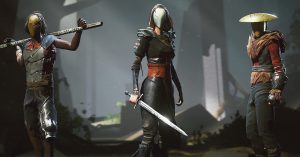What is the internet if not a place for poor unfortunate souls to turn when they don’t know who they are? Astrology memes have risen in popularity because people like it very much when someone boils down their entire being into highly specific, yet extremely broad, character traits. (The Co-Star app proves folks like their horoscopy a little bitchy, too.) Offer up a little bit of demographic information to BuzzFeed and you, too, can find out which How I Met Your Mother character you truly are. Need to know your Hogwarts House? The Wizarding World website has a Sorting Hat waiting. Now, a new form of online personality test has entered the fray: Instagram filters—enough of them to give you a full Myers-Briggs Type analysis delivered via random pop culture comparisons.
I’m not exactly sure how this trend began, but on my own feed it started with Pokémon. Friends of mine started posting selfie videos with the game’s animated characters flipping above their heads like a Las Vegas slot machine. Some of them were people I knew liked Pokémon, but more than a few were non-gamers who were simply curious enough to have an app tell them something they didn’t really need to know. I can’t tell a Metapod from a Geodude, but that didn’t stop me from trying it myself and promptly forgetting the result. (It wasn’t Pikachu, I know that much.)
Since then, I now expect—and almost need—to see the look of dead-eyed anticipation on my friends’ faces when I tap on their little round avatars at the top of the app as they try new versions of the “What Pokémon Are You?” filter. But the fun doesn’t stop at Pocket Monsters. What kind of Disney character are you? Which Friends character are you? Which democratic presidential candidate are you? What MTA train line are you? What item on the Cheesecake Factory menu are you? That last one doesn’t exist—yet—but it might as well. As long as folks are taking Instagram roulettes for a spin, why not make them as absurd as possible? After all, this pointless trend is, I hope we all agree, radically stupid. But at the same time, it’s strangely comforting. There are no definitive answers here; one can simply hit the little button to restart the cycle if the first result wasn’t what they were expecting. (There’s no way that I’m a Monica Geller. Come on!) But the dopamine rush that comes with a little app pretending to scan my face and deciding that I resemble Quasimodo from the animated version of The Hunchback of Notre Dame? It’s neither high art nor high comedy, but it’ll do for a few seconds’ worth of glee.
Our incessant need to generate content for others to see is at the heart of these popular filters, as evidenced by the extremely bored looks on everyone’s faces as they wait for their fictional, often animated counterparts to be assigned to them. What does it mean that an app decided, based on nothing at all, that you’re Hermione Granger? Am I supposed to share your disappointment, or your excitement, that you’re more of an Elsa than any other Disney character in the Magic Kingdom? Or should I be paying attention to the things that any other selfie offers me, your humble follower: that your skin is clear, your hair looks nice, and you’ve figured out the best angle at which to photograph yourself? The idea that you’re a Daenerys is otherwise inconsequential, but everyone seems to know that already.
These filters are like a digital Magic 8 Ball; with a few shakes, you’ll get a fortune—a completely random and unfounded answer to a question you have asked. There’s an inherent laziness to it that’s incredible; instead of exerting much energy at all, these apps require simply tapping and waiting. Even BuzzFeed quizzes demand some semblance of effort: A handful of questions await your honest answers to various inquiries about your interests and tastes that, in exchange for providing the website with valuable demographic information, result in a pseudo-scientific response that will either enthrall or infuriate you.
But just like there’s no way the average millennial BuzzFeed writer actually knows if preferring apples over oranges makes one more of a Chandler than a Phoebe, the people developing these Instagram filters have no clue who you really are. The nice thing, though, is that they don’t even bother with the fake expertise. Hit the button or not, care about the result or not. Who cares! The trend is a perfect visual representation of our collective apathy in the face of overstimulation and a glut of consumable content. The filters are even more basic than the quizzes that came before them, but at least they’re not asking for any more of my personal information, which I’m already making rain across the internet like Usher in a strip club. Whether the next one results in a bemused grin or cross-eyed confusion, I welcome them all—because I’m just one Instagram story behind you in my social media journey to discover my true self through my own unending boredom.
More Great WIRED Stories
- Here’s what directing a Star Wars movie is really like
- Bored with Sunday service? Maybe nudist church is your thing
- The mad scientist who wrote the book on how to hunt hackers
- How the US prepares its embassies for potential attacks
- When the transportation revolution hit the real world
- 👁 Will AI as a field “hit the wall” soon? Plus, the latest news on artificial intelligence
- ✨ Optimize your home life with our Gear team’s best picks, from robot vacuums to affordable mattresses to smart speakers


